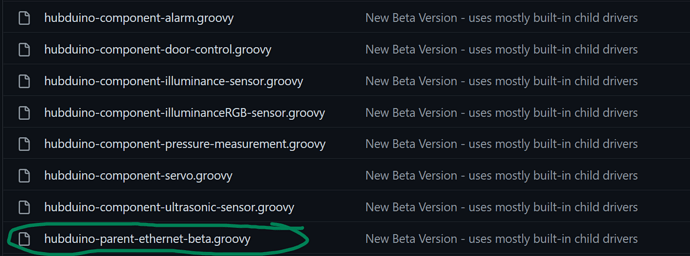ALL - Please do NOT upgrade your existing/working HubDuino systems to this new BETA code-base. This is a BREAKING Change for existing users! All of the new drivers do have unique names, so there is no risk of inadvertently upgrading/breaking one's system!
@jda03806 - I have uploaded the new BETA Hubitat Driver files to my GitHub repo.
The most important file for you to grab is the "hubduino-parent-ethernet-beta.groovy" file as circled below. Instead of requiring all of my old "Child ..." drivers, it uses Hubitat's built-in "Generic Component ..." child drivers instead, wherever possible. The "hubduino-component..." drivers shown below, are required only if you plan to use these types of devices, as Hubitat does not have built-in versions for these.
All,
My goal was to help make it simpler for users to get up a running, without the need to install so much custom code on their hubs. It also has some advantages in being more compatible with some other integrations. 
A few of my original child device types are not currently supported at all, including "Child Sound Pressure Level", "Child Weight Measurement", "Child RGB Switch", "Child RGBW Switch", and "Child Generic Sensor".


